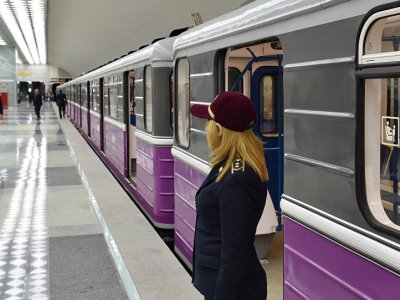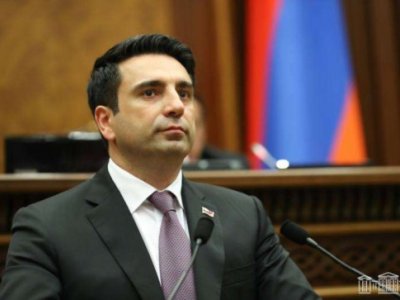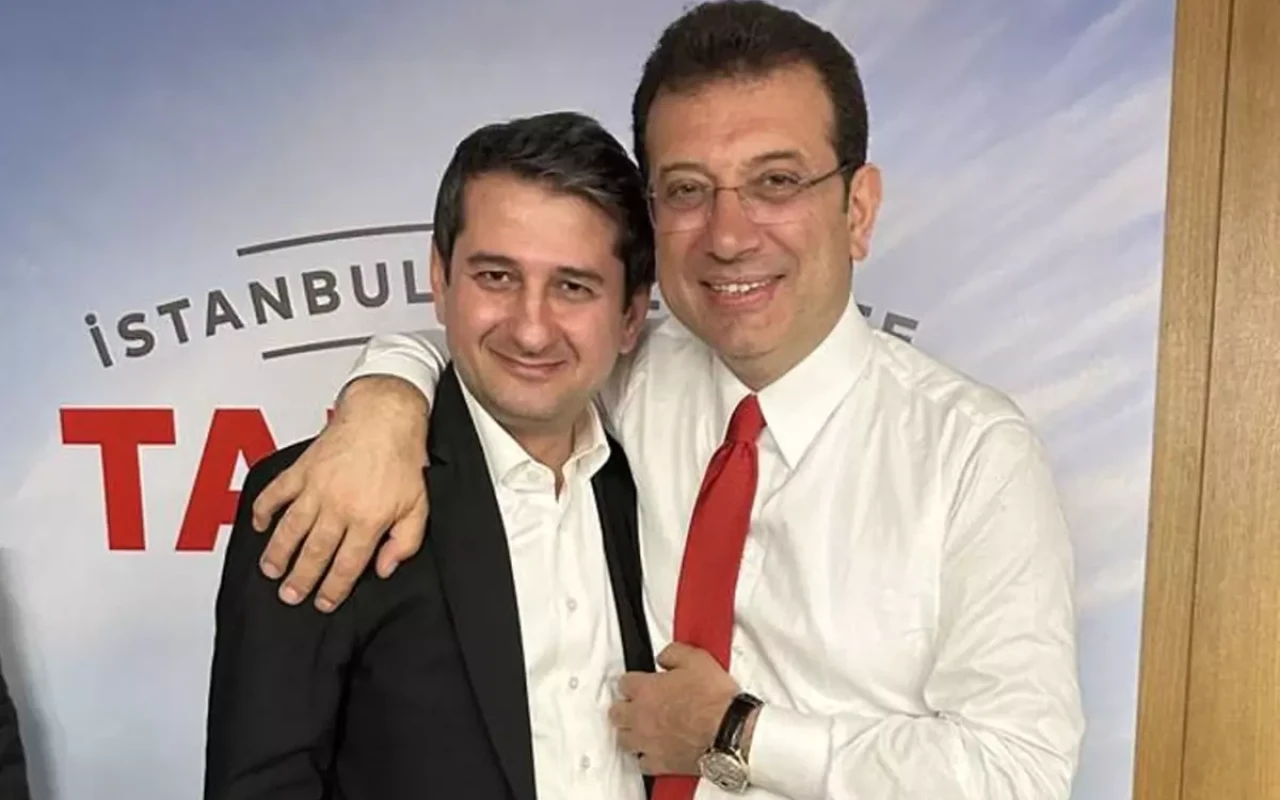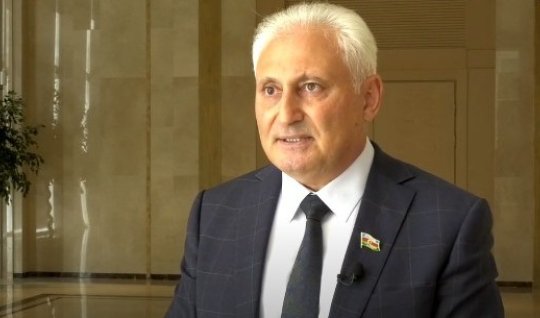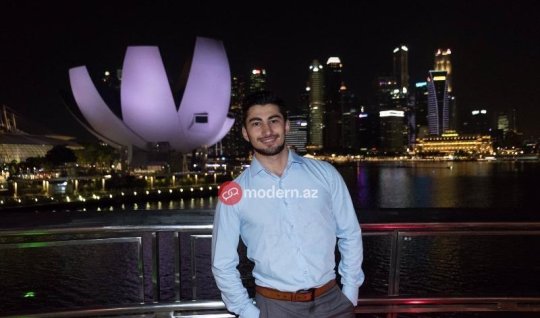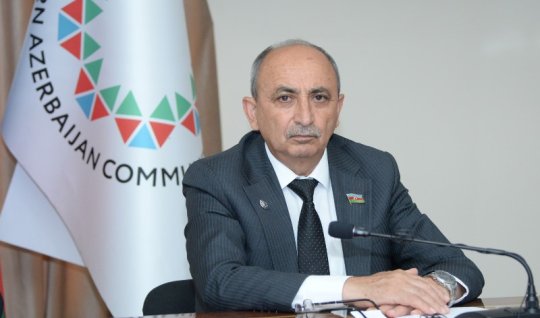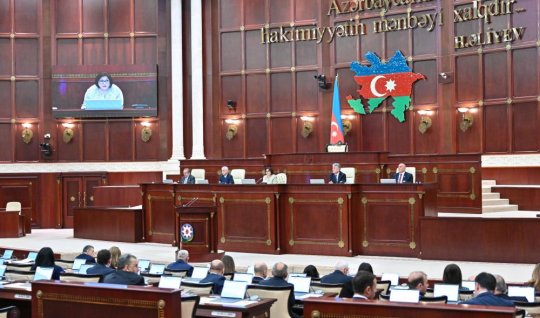One does not renounce, loving

(remembering our Baku)
Cities, like people, have different destinies. Having traveled, fortunately, to many countries, I increasingly understand: not every city is given to possess that magnetic appeal that calls and does not let go. Some cities are good, but cold. Others are beautiful, but do not immediately embrace you. It's all about — temperament, the spirit of the place, and, of course, the citizens' zest for life.
But Baku, in my opinion, is loved by everyone, everyone who has been there at least once. Precisely "been there" — not just heard about it, not just passed through, but breathed its air, saw the light over the sea, felt its sun and salt. Baku captivates from the first glance, from the first breath. And for those who lived there, it is undoubtedly — the best city on earth. Undeniably. For native Bakuvians — even more so. And not only because of its architecture, cleanliness, sun, and sea. We rightfully have something to be proud of!
About My City
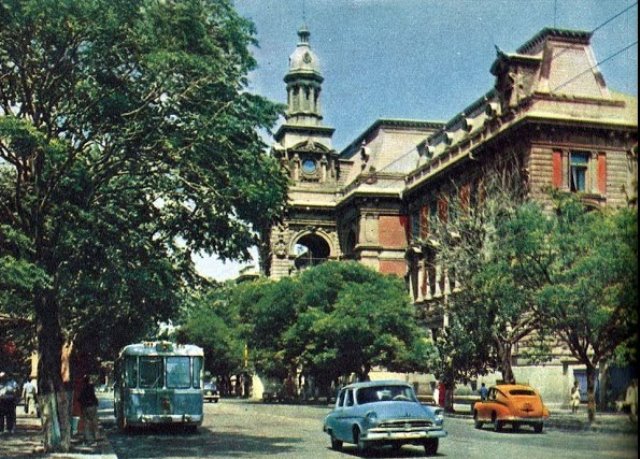
The polyphony, the multifaceted nature, the special aura of the city cannot but attract. Let's appreciate its value! And this — is not a longing for youth, not the sweetness of halva on the lips. This — is a living, sincere reflection on one's City. Once, the famous thinker John Dewey, who, by the way, had a significant influence on the Soviet education system, said: «Mind — is not a noun, mind — is a verb». And in these words — lies the essence. For it is about the activity of an understanding, grateful person, about responsibility towards the past. About a perspective — the optics of reasoning and memory. It is important to see the colossal changes in the city's appearance, but also to see its history — without renouncing a single moment. To understand, accept, and love Baku through the fabric of time.
Recently, many programs have appeared about the fate of the USSR. The history of this country — is complex, contradictory, like life itself. But the first thing that comes to mind — is not facts and dates, but the taste of that time: mornings smelling of newspaper print, radio voices in which anxiety mingled with hope. The turbulent 80s and 90s. The heavy, restless breath of an era. I remember well: during those bitter January days, by fate's will, I found myself in Cuba. We, Soviet specialists, walked through the corridors as if through strange dreams — listening to the radio, catching rumors, not believing our eyes. There was a feeling as if the world in which you grew up had split at the seams, and you stood, not understanding — on which side life now lay.
How could this be? We are one country, one people… But it turned out — not quite…
That time brought a strange mixture of alienation and pain. Against the backdrop of this selective cruelty, the foreignness of what was happening was particularly acutely felt — as if someone had replaced reality with a gray, dull copy. But, thank God, now we can talk about it calmly. Without fear. Without bitterness. Now we are able to remember without reproach, to seek meaning in what we have experienced, and not just scars. And this is already happiness — to comprehend, not to deny.
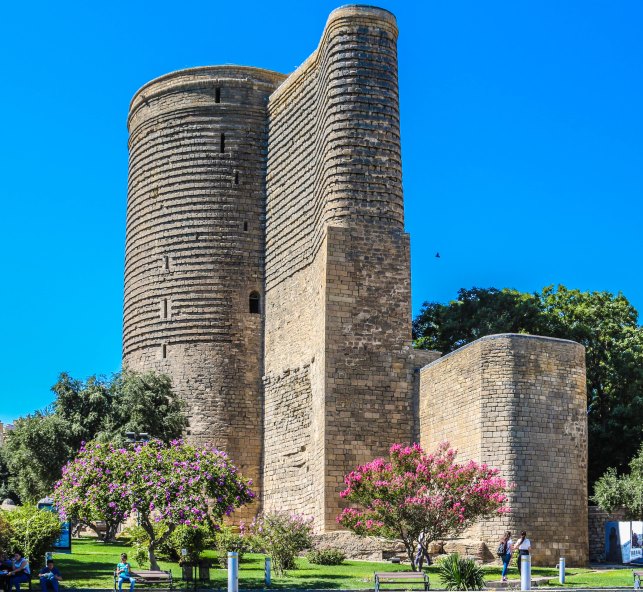
«History — is a prophet turned towards the past»
We emerge from frozen dogmas as from a tight, alien shell. We learn to look again — not with our eyes, but with our hearts. History, as someone wise wrote, avenges unlearned lessons. Friedrich Schlegel said: «History — is a prophet turned towards the past». And when a French journalist asked Deng Xiaoping what he thought of the Great French Revolution, he replied with an Eastern smile: «It's too early to draw conclusions. Only two hundred years have passed». And in this phrase — lies the eternal patience of the East. Its centuries-old wisdom.
But no one prevents us from drawing our own conclusions. It all depends on what we take from the past — fire or ashes.
The poet said: «We are not given to foresee how our word will resonate…» And Confucius reminded even earlier: «When you do not know words — you have nothing by which to know people». Did we understand the words of our history? Did we understand the fabric of life where everything that seemed eternal yesterday was collapsing?
We stood on the edge then — and the wind from the future blew cold. And Baku suddenly stopped smiling. The city, always sunny, seemed to hide its eyes under the brim of the sky. The wind from the sea, smelling of salt and gasoline, seemed alarming, like news brought from afar. People walked the streets silently — as if afraid to disturb the fragile silence in which hope still flickered.
And as is customary in such times, advisors poured out from all cracks. It seemed the whole world, setting aside its own concerns, took it upon itself to teach us how to live. A host of experts and soothsayers — with identical faces, with identical words. And each assured: «Do only this. Do not argue. No time for doubts! Or you will fall behind forever!» And even the advertisements of those years sounded almost like a mockery: «Despite the wealth of choice — there is no other alternative».
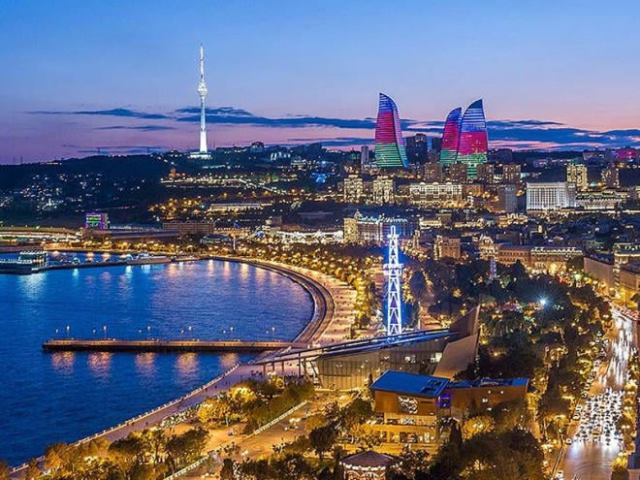
Life — is not a television slogan
But life — is not a television slogan. It is always more multifaceted, subtle, and vibrant. Even capitalism itself, about which so much was said, — is not a dogma, but a search, a risk, and an inspiration. In it, not the strongest wins, but the one who managed to invent something of their own — unexpected, alive, like the light in the window of one's home.
In the very heart of Baku, there is a beautiful Mugham Center — a place where music seems to converse with the wind. It stands right by the sea, and when the sun sets over the horizon in the evening, it seems as if the Caspian itself is listening to these ancient melodies. You hear: the stringed overflow of the kamancheh trembles like a ray of light on the water, and the singer's voice rises higher and higher, more subtly, to the very soul. And at this moment, it is impossible not to remember: everything we loved is alive. Baku is alive. And not only in its stones and streets — but in the intonation, in the glances, in the words that we carried with us, like a charm.
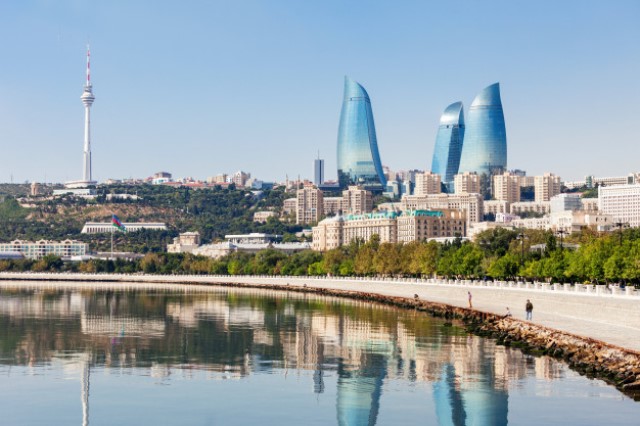
Baku — is not just a point on the map
For many years I have lived and continue to live far away. Yet, if I close my eyes — there it is, my city. The evening bustle on Nizami Street, the smell of roasted chestnuts, a leisurely conversation over a samovar, children's shouts from the courtyard where they still play "hopscotch." The Caspian, breathing heavily under the moonlight. The sea always knew more than people. It saw everything — joy, loss, and that special, poignant tenderness with which a Bakuvian pronounces: «my city». Baku — is not just a point on the map. It — is a state of mind, a special intonation of the heart. And everyone who has breathed this air at least once will never forget it. Even if they go far away, even if they live a thousand lives — one of them will still be Bakuvian. The one where the sun is a little brighter, the tea a little stronger, and the people a little kinder.
And so, closing my eyes, I stand on the embankment again. The wind from the Caspian whispers, playing with my hair, just as it once played with the sails of small boats in my childhood. The city around breathes, slowly and confidently. It remembers our childhood laughter, every step on the cobblestones, every melody sung in the street.
Baku — is not just architecture and streets; it is a special state of mind that cannot be conveyed in words. It lives in every glance, in every sound, in every rustle of the sea against the stones. And the further time passes, the clearer you feel: the city does not leave you. You go through life, and its breath is still there, quiet and confident.
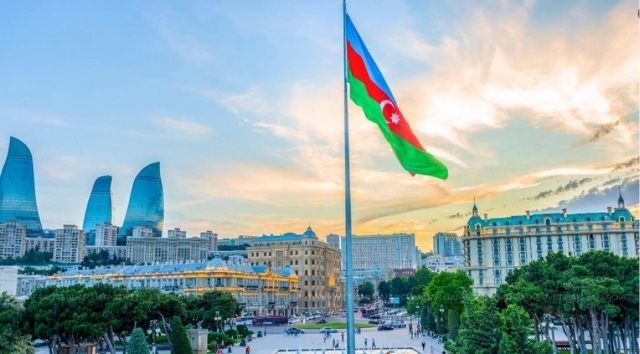
Baku lives in us
I remember the lights of evening Baku. They reflect in the water, and it seems that each lamp — is a small sun, reminding us that we were happy here. And this happiness — is not heroic, not loud, but quiet, soft, warming the soul, like the first light of morning.
And let the world change its rules, let cities disappear and new ones emerge — Baku remains. It lives in us, in our words, in our memories. It teaches us to love — unconditionally, without looking back, without renouncing a single moment. And we love it just as it loves us ⸺ faithfully, ardently, forever.
Agamali Mammadov,
Head of Department at Lomonosov Moscow State University, Doctor of Sociological Sciences, Professor
-
17:18, Bu günAccording to the stars, the result of the “Qarabağ” - “Chelsea” match WILL BE LIKE THIS
-
17:02, Bu günShould there be a meeting with Armenian scientists? - REACTION from Azerbaijani scientists
-
16:56, Bu günProsecution took action against Vučić
-
16:05, Bu günZangazur corridor is not a rival to “North–South” - Shoigu
-
15:39, Bu günMisir Mərdanov wants to be a minister again? - STATEMENT
-
15:20, Bu günDid the AzTV chairman want to buy a helicopter? - REACTION
-
15:04, Bu günShoygu delivered a message regarding the South Caucasus
-
14:16, Bu günWill Selahattin Demirtaş be released?
-
14:15, Bu gün“Qarabağ” will surprise today! - Football EXPERTS
-
14:07, Bu günThe Government is closing the “Russian House”
-
14:00, Bu günİmamoğlu's wife's diplomatic passport was revoked
-
13:54, Bu günSubscribers' debt for heating service has exceeded 4 million - Official
-
12:47, Bu günA company to build the Zangazur corridor will be established
-
12:00, Bu günOne does not renounce, loving
-
10:36, Bu günEurope will not make concessions to Russia
-
09:44, Bu günIran released three French citizens
-
09:04, Bu günCause of death of seals in the Caspian Sea - EXPLAINED
-
08:09, Bu günFor the first time, a Muslim mayor WAS ELECTED in New York
-
00:40, Bu günEvery Jew who votes for him is a fool - TRUMP
-
00:11, Bu günDay of mourning in Rome
-
4 November 2025, 21:26Why has Macron's advisor come to Baku?
-
4 November 2025, 17:31Azerbaijani political scientist spoke in Yerevan: “We must be realistic about peace”
-
4 November 2025, 17:15Tension in Ankara - Erdoğan and Bahçeli are at odds
-
4 November 2025, 15:53The US's long-serving vice-president who also visited Baku PASSED AWAY
-
4 November 2025, 15:25A street in Khankendi has been named after Enver Pasha
-
4 November 2025, 15:06Flying cars are no longer fiction
-
4 November 2025, 14:40`SOCAR concerning rumors about AI-95 gasoline RESPONDED`
-
4 November 2025, 14:21Who killed Baymuradova in Yerevan?
-
4 November 2025, 13:24Targets in food safety have not been achieved - from the Accounts Chamber SERIOUS CRITICISM
-
4 November 2025, 12:50Pashinyan expects Erdoğan in Yerevan















